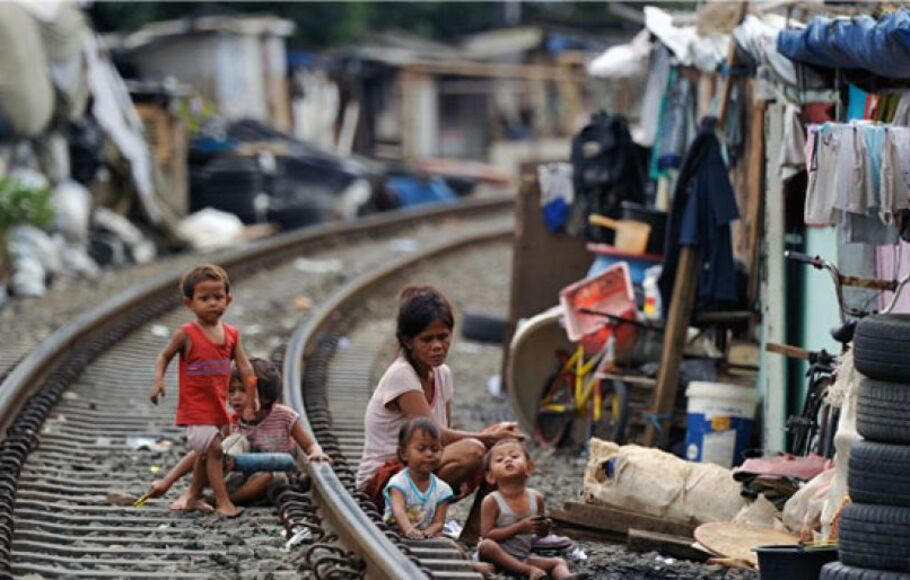The Root Causes of Poverty in Indonesia

The Root Causes of Poverty in Indonesia
Poverty in Indonesia is a complex issue that results from various interdependent factors contributing to the aggravation of the problem. Let's look at some major causes that all contribute to poverty in our country.
First, there is economic inequality. Hand in glove with rapid economic growth, the distribution of wealth and income is extremely unequal. While a tiny group of the rich goes on amassing their riches, the poorer ones are always stuck in poverty. This growing gap between the rich and poor spreads the bridge that is increasingly hard to jump over.
The next issue is related to access to education. Most of the people living in the very remote areas hardly get any quality education. Without adequate education, it is difficult for these people to develop specific required skills and knowledge that are needed for any decent job, which again makes it very difficult to receive good economic opportunities.
Insufficient health access is also another major factor. Poor health can dampen the productivity of a person to work effectively. Unequal access to quality healthcare services makes fighting poverty more burdensome.
There are also structural and system failure issues: political instability, bureaucratic inefficiencies, and corruption commonly stand in the way of alleviating poverty. Inefficient systems result in the breakdown of programs for poverty reduction without achieving the expected success rate.
The other serious issues are those of unemployment. Most people do not have decent employment opportunities; for those working, the pay is ridiculously too low. This enhances poverty, as such individuals cannot meet their basic needs.
Other factors are the social and environmental crises. When people's lives depend on agriculture, natural disasters, climate change, and other environmental concerns usually destroy livelihoods. The effects of these crises usually linger, exacerbating poverty.
Last but not least, insufficient infrastructure and a lack of public services. Inadequate infrastructure in transportation and energy, among others, is an obstacle to economic progress and limits opportunities. It raises the probability of living in poverty within a particular community.
Such root causes of poverty need to be comprehended and eradicated at their very core so that we could adequately deal with poverty. Only thus, with a corresponding appropriate strategy, coupled with supporting policies, can we expect substantial reduction in poverty and hence, an overall brighter future for all.
Poverty in Indonesia is a complex issue that results from various interdependent factors contributing to the aggravation of the problem. Let's look at some major causes that all contribute to poverty in our country.
First, there is economic inequality. Hand in glove with rapid economic growth, the distribution of wealth and income is extremely unequal. While a tiny group of the rich goes on amassing their riches, the poorer ones are always stuck in poverty. This growing gap between the rich and poor spreads the bridge that is increasingly hard to jump over.
The next issue is related to access to education. Most of the people living in the very remote areas hardly get any quality education. Without adequate education, it is difficult for these people to develop specific required skills and knowledge that are needed for any decent job, which again makes it very difficult to receive good economic opportunities.
Insufficient health access is also another major factor. Poor health can dampen the productivity of a person to work effectively. Unequal access to quality healthcare services makes fighting poverty more burdensome.
There are also structural and system failure issues: political instability, bureaucratic inefficiencies, and corruption commonly stand in the way of alleviating poverty. Inefficient systems result in the breakdown of programs for poverty reduction without achieving the expected success rate.
The other serious issues are those of unemployment. Most people do not have decent employment opportunities; for those working, the pay is ridiculously too low. This enhances poverty, as such individuals cannot meet their basic needs.
Other factors are the social and environmental crises. When people's lives depend on agriculture, natural disasters, climate change, and other environmental concerns usually destroy livelihoods. The effects of these crises usually linger, exacerbating poverty.
Last but not least, insufficient infrastructure and a lack of public services. Inadequate infrastructure in transportation and energy, among others, is an obstacle to economic progress and limits opportunities. It raises the probability of living in poverty within a particular community.
Such root causes of poverty need to be comprehended and eradicated at their very core so that we could adequately deal with poverty. Only thus, with a corresponding appropriate strategy, coupled with supporting policies, can we expect substantial reduction in poverty and hence, an overall brighter future for all.



